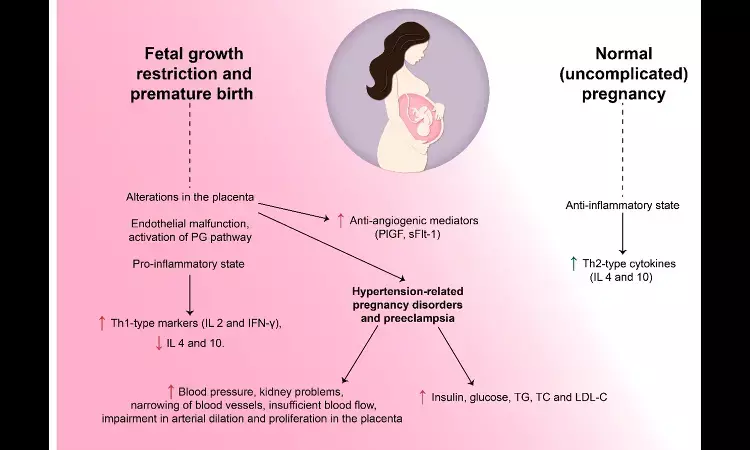- Home
- Medical news & Guidelines
- Anesthesiology
- Cardiology and CTVS
- Critical Care
- Dentistry
- Dermatology
- Diabetes and Endocrinology
- ENT
- Gastroenterology
- Medicine
- Nephrology
- Neurology
- Obstretics-Gynaecology
- Oncology
- Ophthalmology
- Orthopaedics
- Pediatrics-Neonatology
- Psychiatry
- Pulmonology
- Radiology
- Surgery
- Urology
- Laboratory Medicine
- Diet
- Nursing
- Paramedical
- Physiotherapy
- Health news
- Fact Check
- Bone Health Fact Check
- Brain Health Fact Check
- Cancer Related Fact Check
- Child Care Fact Check
- Dental and oral health fact check
- Diabetes and metabolic health fact check
- Diet and Nutrition Fact Check
- Eye and ENT Care Fact Check
- Fitness fact check
- Gut health fact check
- Heart health fact check
- Kidney health fact check
- Medical education fact check
- Men's health fact check
- Respiratory fact check
- Skin and hair care fact check
- Vaccine and Immunization fact check
- Women's health fact check
- AYUSH
- State News
- Andaman and Nicobar Islands
- Andhra Pradesh
- Arunachal Pradesh
- Assam
- Bihar
- Chandigarh
- Chattisgarh
- Dadra and Nagar Haveli
- Daman and Diu
- Delhi
- Goa
- Gujarat
- Haryana
- Himachal Pradesh
- Jammu & Kashmir
- Jharkhand
- Karnataka
- Kerala
- Ladakh
- Lakshadweep
- Madhya Pradesh
- Maharashtra
- Manipur
- Meghalaya
- Mizoram
- Nagaland
- Odisha
- Puducherry
- Punjab
- Rajasthan
- Sikkim
- Tamil Nadu
- Telangana
- Tripura
- Uttar Pradesh
- Uttrakhand
- West Bengal
- Medical Education
- Industry
Postoperative day 3 Lactate may predict deterioration in patients undergoing early excision and grafting in Burn Patients: a Study

Researchers have found in a new study that postoperative day 3 (POD3) lactate levels in extensive burn patients undergoing early excision and grafting were significantly linked to clinical deterioration, suggesting their potential role as an early risk assessment tool and guide for supportive interventions. Burn injuries, especially those requiring early excision and grafting, often involve severe metabolic and hemodynamic stress, increasing the risk of organ dysfunction.
Elevated lactate levels are widely regarded as a biomarker of tissue hypoperfusion and poor prognosis in critical illness. The study highlights that monitoring lactate trends beyond the immediate perioperative period, particularly on POD3, provides meaningful insight into patients at higher risk of adverse outcomes.
The findings demonstrated that persistently elevated POD3 lactate levels were associated with longer ICU stays, increased need for vasopressor support, and higher rates of complications such as sepsis and multi-organ failure. In contrast, patients with normalized or decreasing lactate levels by POD3 showed better recovery trajectories, lower mortality, and improved graft outcomes. From a clinical perspective, integrating lactate measurement into routine postoperative monitoring may allow burn care teams to identify vulnerable patients earlier.
This would facilitate timely interventions such as optimizing fluid resuscitation, enhancing nutritional support, and implementing organ-protective strategies. The predictive value of POD3 lactate could also complement established burn severity indices and help refine postoperative risk stratification models. The authors emphasized that while initial lactate values reflect the severity of burn shock and resuscitation adequacy, subsequent levels-particularly on POD3-reflect ongoing systemic and metabolic stability.
Thus, lactate clearance patterns over time, rather than single baseline values, hold greater prognostic significance. Overall, the study suggests that POD3 lactate serves as a simple, inexpensive, and reliable biomarker for predicting deterioration in extensive burn patients after early excision and grafting. Further large-scale studies are warranted to validate these findings and explore whether lactate-guided management protocols can improve survival and long-term outcomes in burn care.
Dr. Shravani Dali has completed her BDS from Pravara institute of medical sciences, loni. Following which she extensively worked in the healthcare sector for 2+ years. She has been actively involved in writing blogs in field of health and wellness. Currently she is pursuing her Masters of public health-health administration from Tata institute of social sciences. She can be contacted at editorial@medicaldialogues.in.
Dr Kamal Kant Kohli-MBBS, DTCD- a chest specialist with more than 30 years of practice and a flair for writing clinical articles, Dr Kamal Kant Kohli joined Medical Dialogues as a Chief Editor of Medical News. Besides writing articles, as an editor, he proofreads and verifies all the medical content published on Medical Dialogues including those coming from journals, studies,medical conferences,guidelines etc. Email: drkohli@medicaldialogues.in. Contact no. 011-43720751


